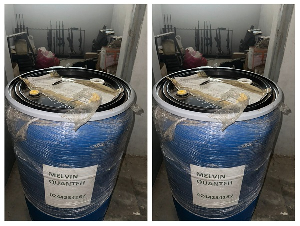Business News of Sunday, 16 September 2018
Source: www.ghanaweb.com
Business confidence level high - AGI CEO
Business confidence, for three quarters of this year, has increased marginally as compared with that of the previous, according to the (AGI’s) Business Barometer.
CEO of AGI, Seth Twum Akwaboah, says despite the achievements chalked the local industry is still under pressure.
The business barometer is a tool that measures the confidence level of the business environment as perceived by the business community.
Speaking at this year's Annual General Meeting of the Eastern and Volta region chapter of the association in Koforidua, Mr. Twum Akwaboah noted that government needs to pay attention to the cedi depreciation to soar up the confidence level of businesses.
" AGI has been monitoring the business environment and indeed we are glad to say that for the past three quarters or so we've seen the business confidence going up. We have a particular tool we call the AGI barometer survey which measures the confidence level of the environment as perceived by the business community and we've seen gradual improvement and for the past three quarters we've moved about the baseline and it's always a struggle to go beyond the baseline so it means things are gradually moving to make sure that we get better ". He explained.
The AGI says in spite of 30% reduction in electricity tariffs and the scrapping of nuisance taxes, businesses continue to suffer.
Speaking on the theme: moving Ghana beyond through industrialization, Volta regional minister, Dr. Archibald Letsa noted said government is determined to implement policies aimed at driving the economy towards industrialization, citing the one district, one factory policy as a major boost.
"For government to achieve the policy of Ghana beyond aid focus is on industrialization we shall enable us to add value to our natural resources, agricultural produce, improve on domestic consumption and for export. This is the rationale behind the one district one factory policy initiative with the industrial sector which is largely private cannot be left out" He explained.











